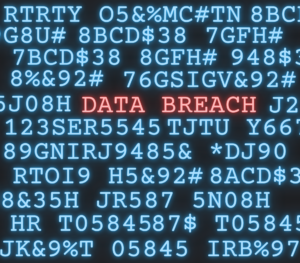As cyberattacks become more prevalent, businesses are looking for ways to protect themselves from potential financial losses. One available option is cybersecurity insurance. This type of insurance is designed to help businesses cover the costs associated with a cyberattack, including forensic investigation, legal fees, public relations, and business interruption.

If you’re considering cybersecurity insurance, which we recommend for security and peace of mind at BNC, here are some things you need to know:
What is cybersecurity insurance?
Cybersecurity insurance, also known as cyber liability insurance or cyber insurance, is a type of insurance that helps businesses protect themselves from financial losses associated with cyber attacks. It provides coverage for a variety of expenses, including forensic investigation, legal fees, public relations, and business interruption. With ransomware and other cyber attacks on the rise, it’s wise for businesses to consider a response plan to protect their company.
What does cybersecurity insurance cover?
No attack is the same, and a company’s potential needs and risks vary depending on the size and industry the company is in. It follows then that cybersecurity insurance policies will vary greatly, however most policies will cover the following expenses:
- Forensic investigation: This involves investigating the cause and extent of the cyber attack. It can include hiring a cybersecurity expert to identify the source of the attack, determine the extent of the damage, and recommend ways to prevent future attacks.
- Legal fees: This can include hiring an attorney to defend against lawsuits or to negotiate settlements.
- Public relations: This involves managing the company’s public image after a cyber attack. It can include hiring a public relations firm to handle media inquiries and to communicate with customers and stakeholders.
- Business interruption: This covers the loss of income resulting from a cyber attack. It can include lost revenue, additional expenses incurred to maintain operations, and extra costs associated with restoring the company’s systems and data.
What types of cyber attacks are covered?
Cybersecurity insurance policies can cover a variety of cyber attacks, including:
- Malware and ransomware attacks: These involve infecting a company’s systems with malicious software that can disrupt operations or steal sensitive information.
- Denial of service attacks: These involve overwhelming a company’s systems with traffic, making it impossible for legitimate users to access the system.
- Social engineering attacks: These involve tricking employees into providing sensitive information or granting access to the company’s systems.
- Cyber extortion: These involve threatening a company with a cyber attack unless a ransom is paid.
How much does cybersecurity insurance cost?
The cost of cybersecurity insurance can vary depending on the size of the business, the level of coverage needed, and the industry the business operates in. Small businesses can expect to pay a few thousand dollars per year for coverage, while larger businesses can pay tens or even hundreds of thousands of dollars per year. For any curious researcher wanting to learn more about specific costs, there are cybersecurity insurance cost calculators out there that can help give a fair assessment of what costs will look like.
How can businesses reduce the cost of cybersecurity insurance?
It’s best not to rely on insurance alone to protect from ransomware. BNC has offices in Austin, Dallas, and Denver, and we specialize in helping businesses stay secure and employ the strategies that prevent attacks. Here are several things businesses can do to reduce the cost of cybersecurity insurance:
- Hire outside IT consultants: A no-brainer for businesses looking to improve their IT capabilities. Business Network Consulting provides a dedicated on-site and remote engineer to each of our customers. And the benefit of outsourcing comes into play when a problem requires a team of experts to solve, like our team of IT engineers that support our customers with top notch proactive support.
- Improve cybersecurity: Insurance companies may offer lower premiums to businesses that have strong cybersecurity measures in place, such as firewalls, antivirus software, and employee training programs.
- Choose the right level of coverage: Businesses should choose the level of coverage that best meets their needs without over-insuring. Over-insuring can lead to higher premiums.
- Work with a broker: Cybersecurity insurance brokers can help businesses find the right policy for their needs and negotiate better rates.
What should businesses look for in a cybersecurity insurance policy?
When shopping for cybersecurity insurance, businesses should look for the following features:
- Comprehensive coverage: The policy should cover a wide range of cyber attacks and associated expenses.
- Limits and deductibles: The policy should have appropriate limits and deductibles that are affordable for the business.
- Third-party coverage: The policy should cover expenses related to a cyber attack on a third-party vendor or partner.
- Notification requirements: The policy should have clear requirements for when and how to notify the insurance company of a cyber attack.
- Exclusions: The policy should clearly state any exclusions or limitations to coverage.
Whether you’re undertaking a big one-time project or need ongoing IT support in Dallas, Denver, or Austin, BNC knows what it takes to provide exemplary services tailored specifically to suit your needs.
If you’re just beginning to make your list of potential vendors, learn about how we’re different from typical IT providers. Then, contact us for a free consultation. We’re more than happy to talk about how we can work together.
